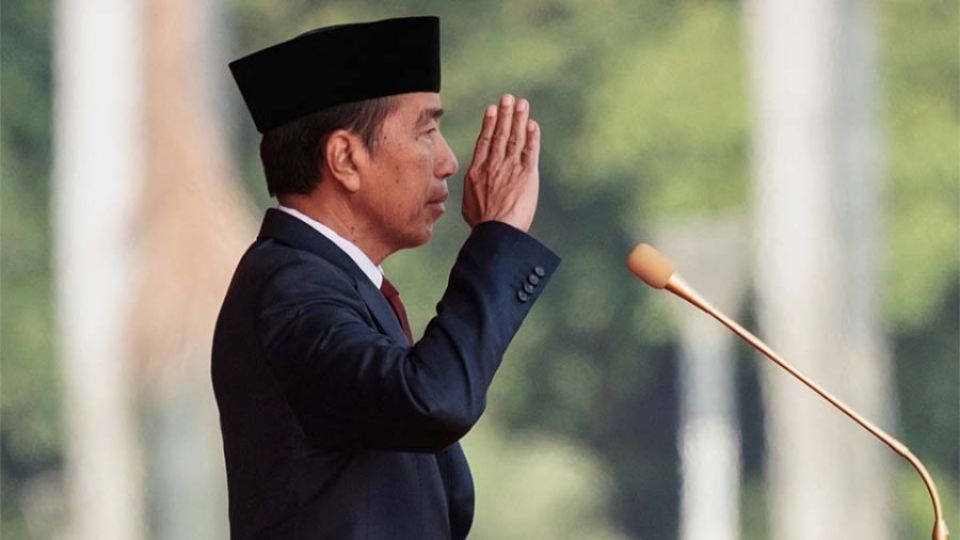December 27, 2024
KUALA LUMPUR – The political rift leading up to the former Indonesian president’s dismissal from his own party was years in the making.
THE question was, to fire or not to fire?
Firing a hugely popular sitting president can be counter-productive. The leadership of the Indonesian Democratic Party of Struggle (PDI-P) was mindful that there are sympathisers of Joko “Jokowi” Widodo within the party. Factionalism is a death knell for the party.
Furthermore, firing Jokowi before the presidential election in February this year would have been an unwise move.
For almost 18 months, PDI-P had to bite the bullet.
But on Dec 17, Komaruddin Watubun, head of the party’s Council of Honour, announced the expulsion of Jokowi, his son Gibran Rakabuming Raka and son-in-law Bobby Nasution, together with 27 others.
The die has been cast. Political observers now anticipate that the tensions between Jokowi and the party will escalate to a new level.
Jokowi is not taking his dismissal lightly. After all, he is the first former president of Indonesia to face the indignity of such treatment.Gibran is also the first sitting vice-president and Bobby the first governor to face the axe.
Komaruddin made it clear at the media conference announcing the expulsion that the chairperson of PDI-P, former president Megawati Sukarnoputri, had signed the dismissal latter.
The build-up to the announcement reached its crescendo when Jokowi, anticipating his expulsion, made a comment about PDI-P being “parti perorangan” (an individual part). Most likely, he was referring to Megawati personalising the party.
Soon after, secretary-general Hasto Kristiyanto appeared on a popular political podcast run by Akbar Faizal, claiming that in 2023, Jokowi personally instructed that presidential candidate Anies Baswedan be investigated for corruption.
He was anticipating the worst for his criticism of Jokowi. True enough, on Dec 24, the Corruption Eradication Commission of Indonesia announced that Hasto was a suspect in a corruption case involving another PDI-P stalwart, Harun Masiku. Talk about who is in charge!
In the aftermath of the dismissal, PDI-P committee executive Deddy Yevri Sitorus claimed that Jokowi was planning to usurp Megawati’s position in the party’s national congress in May next year and was using his clout to factionalise the party.
This appeared to confirm Megawati’s earlier statement that someone was plotting to prevent her from seeking re-election.
There have been banners calling for Megawati’s removal and accusations that the matriarch of Indonesian politics has overstayed her welcome.
Such demands are seen as a systematic smear campaign by certain factions aligned to Jokowi within the party.
Jokowi has been labelled “Malim Kundang” by Megawati. Malim Kundang is the Indonesian version of Malaysia’s Si Tanggang folk tale. It tells of an ungrateful son and centres around the themes of disobedience, insubordination and betrayal.
PDI-P bet on a timber merchant to become the mayor of Solo in 2005. For two terms, Jokowi was in charge of the small but historic town. In 2012, Megawati and PDI-P again supported Jokowi’s bid for the governorship of Jakarta. He won handsomely.
Barely two years into his governorship, he contested for the presidency, which he won against the better-known Prabowo Subianto. He did it again in 2019.
Jokowi’s ascendency in politics is unique, his style unheard of in Indonesian politics.
He is the ordinary “pak” who became president. His famous blusukan (going down to the people) approach endeared him to the everyday folk.
Little wonder that his approval rating while in office was the highest ever among democratically leaders anywhere in the world.
But power changed him – and dramatically too.
By Jokowi’s second time around as president, he had become the enemy of civil societies, intellectuals, scholars, writers and the arts community.
He was accused of planning a political dynasty involving his two sons, Gibran and Kaesang Pangarep, and his son-in-law, Bobby.
Gibran is the youngest Indonesian vice-president, Kaesang was made the head two days after he joined the Indonesian Solidarity Party (PSI) and Bobby won the governorship of Sumatera Utara in a hotly contested regional election in November. Many believed democracy was upended and the rules of law compromised.
Ultimately, it was Jokowi’s move to ignore the very party that supported him that created so much angst.
PDI-P had their choice for the candidates for president and deputy president for 2024 – Ganjar Pranowo and Mahfud MD. But Jokowi had other ideas.
Prabowo needed Jokowi to win. So when he partnered with Gibran, Indonesia’s fate was sealed.
Before that, however, Jokowi needed to clear one major hurdle.
The Constitution stipulates that any candidate for the post of president or deputy must be 40 years of age. Gibran was 36 at the time.
The Constitutional Court headed by Usman Anwar, Jokowi’s brother-in-law, ruled in a 5-4 decision that the age requirement could be lowered, thus clearing the way for Gibran’s candidacy.
This resulted in a storm of protest, with Usman found violating the code of ethics and being removed from his position by the Constitutional Court Ethics Council. But the decision of the Court was final.
Indonesians can’t be blamed for comparing Gibran with the likes of Mohammad Hatta, Adam Malik, Sudarmono, Try Sutrisno, BJ Habibie, Megawati and Jusuf Kalla – all legends who have graced the chair of vice-president.
Many believe the PDI-P dismissal has had little impact on Jokowi, Gibran and Bobby. Morally, it is another dent in Jokowi’s chequered political career. He is not going to walk into the sunset any time soon. Jokowi will not be PDI-P’s problem alone, but also Prabowo’s.
The writer is an avid observer of Indonesian politics. The views expressed here are his own.

